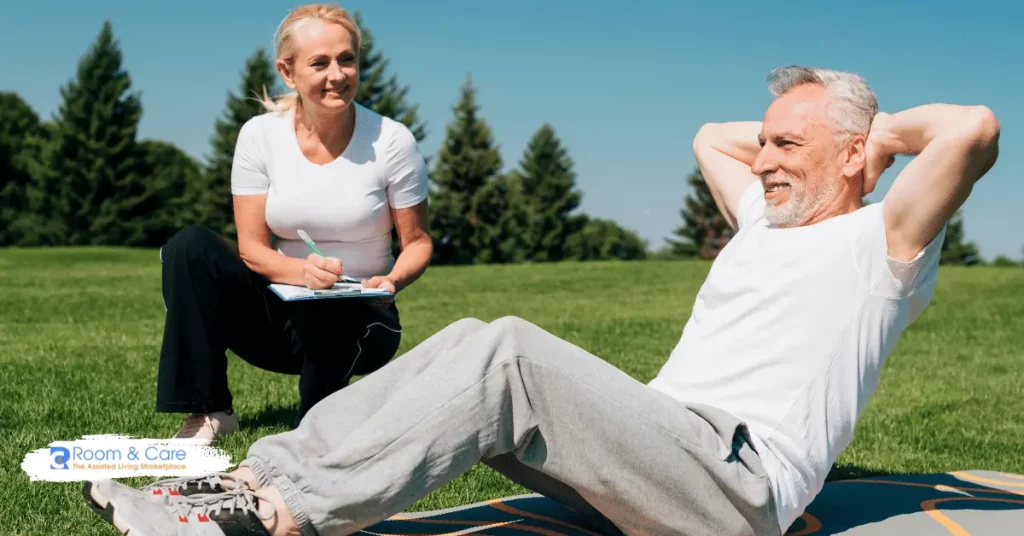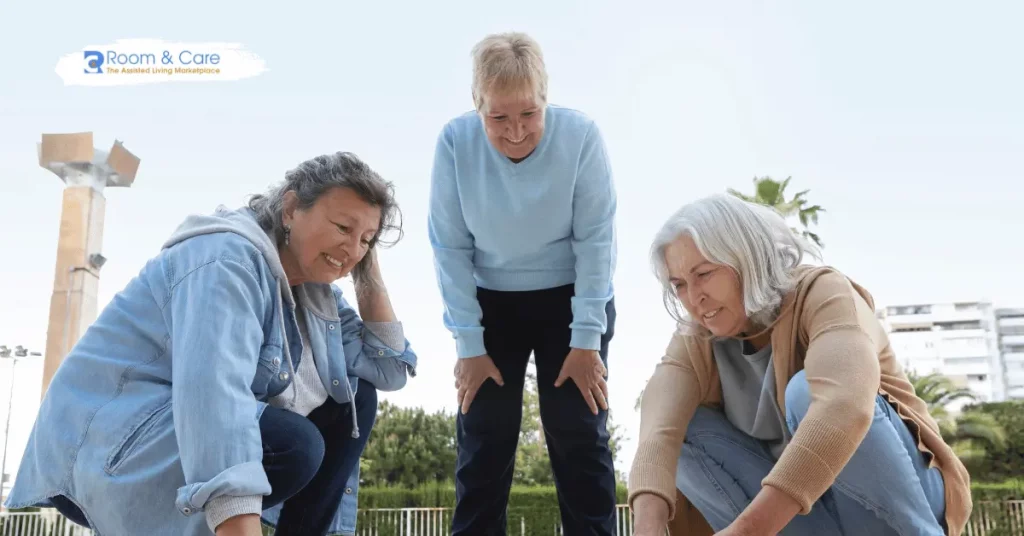

Aging is a natural part of life, but it doesn’t mean we have to surrender our vitality and well-being. Embracing healthy aging tips for seniors and adopting effective healthy aging strategies can lead to a vibrant and fulfilling life. This blog post delves into the key aspects of healthy aging, offering practical advice, insights, and tips that seniors can apply to maintain their physical, mental, and emotional health. Let’s explore how seniors can age gracefully and enjoy their golden years to the fullest.
Aging healthily is not just about adding years to life but also about adding life to years. Maintaining good health as we age can help prevent chronic diseases, improve quality of life, and enhance overall well-being. Healthy aging involves a holistic approach, encompassing physical health, mental wellness, social connections, and lifestyle choices. By focusing on these areas, seniors can navigate the challenges of aging with confidence and grace.
Regular physical activity is crucial for healthy aging. Exercise helps maintain muscle strength, flexibility, and balance, reducing the risk of falls and injuries. It also supports cardiovascular health, boosts the immune system, and enhances mood. Seniors should aim for at least 150 minutes of moderate-intensity aerobic activity, such as walking or swimming, each week. Incorporating strength training exercises twice a week can help preserve muscle mass and bone density.
A balanced diet is essential for maintaining good health in seniors. Nutrient-rich foods provide the energy and nutrients needed to support bodily functions and prevent chronic diseases. Seniors should focus on:
Staying hydrated is also vital, as dehydration can lead to various health issues, including urinary tract infections and kidney stones.
Routine medical check-ups and screenings can detect potential health issues early, allowing for timely intervention and management. Seniors should have regular visits with their healthcare providers to monitor blood pressure, cholesterol levels, and other vital health indicators. Vaccinations, such as flu and pneumonia shots, are also important to protect against infections.

Engaging in activities that challenge the brain can help maintain cognitive function and prevent cognitive decline. Seniors can benefit from puzzles, reading, learning new skills, or playing musical instruments. Activities that require strategic thinking, such as chess or bridge, can also be beneficial.
Chronic stress can negatively impact mental and physical health. Seniors should practice stress management techniques such as mindfulness, meditation, deep breathing exercises, and yoga. These practices can help reduce anxiety, improve mood, and enhance overall well-being.
Staying socially active is crucial for mental health. Strong social connections can reduce the risk of depression and cognitive decline. Seniors should maintain relationships with family and friends, participate in community activities, and consider joining clubs or groups with similar interests.
Engaging in hobbies and activities that bring joy can enhance emotional well-being. Whether it’s gardening, painting, or volunteering, pursuing passions can provide a sense of purpose and fulfillment.
Cultivating an attitude of gratitude can improve emotional health. Seniors can keep a gratitude journal, noting down things they are thankful for each day. This practice can shift focus away from negative thoughts and promote a positive outlook on life.
It’s important for seniors to recognize when they need emotional support. Talking to a trusted friend, family member, or mental health professional can provide comfort and guidance during challenging times.
Avoiding smoking and excessive alcohol consumption is critical for healthy aging. These behaviors can lead to a range of health issues, including heart disease, cancer, and liver problems. Quitting smoking and limiting alcohol intake can significantly improve overall health.
Getting enough sleep is vital for physical and mental health. Seniors should aim for 7-8 hours of quality sleep each night. Establishing a regular sleep routine, creating a comfortable sleep environment, and avoiding stimulants like caffeine before bedtime can promote better sleep.
Taking precautions to prevent falls and injuries is essential for maintaining independence. Seniors should ensure their homes are safe by removing tripping hazards, installing grab bars in bathrooms, and using assistive devices if needed.

Research has shown that adopting healthy aging strategies can significantly improve quality of life. According to the World Health Organization (WHO), regular physical activity can reduce the risk of non-communicable diseases by 20-30% and lower the risk of falls and fractures by up to 40%. A study published in the Journal of the American Medical Association (JAMA) found that social engagement and cognitive activities are associated with a lower risk of dementia.
The best exercises for seniors include walking, swimming, tai chi, and yoga. Strength training exercises, such as lifting weights or using resistance bands, are also beneficial for maintaining muscle mass and bone density.
Seniors can maintain a healthy diet by eating a variety of nutrient-rich foods, including fruits, vegetables, whole grains, lean proteins, and healthy fats. It’s also important to stay hydrated and limit the intake of processed foods, sugar, and salt.
Effective stress management techniques for seniors include mindfulness, meditation, deep breathing exercises, and yoga. Engaging in hobbies and spending time with loved ones can also help reduce stress.
Seniors can stay socially active by maintaining relationships with family and friends, participating in community activities, and joining clubs or groups with similar interests. Volunteering and attending social events can also help build social connections.
To improve sleep quality, seniors can establish a regular sleep routine, create a comfortable sleep environment, and practice relaxation techniques before bed. Avoiding caffeine and electronic screens in the evening can also promote better sleep.
Seniors can prevent falls and injuries by removing tripping hazards, securing loose rugs, installing handrails and grab bars, and using assistive devices if needed. Regular exercise to maintain strength and balance is also important.
Healthy aging is a multifaceted approach that involves maintaining physical health, mental wellness, emotional well-being, and making positive lifestyle choices. By incorporating these healthy aging tips for seniors and healthy aging strategies, seniors can enhance their quality of life and enjoy their golden years to the fullest.
At Room and Care, we are dedicated to helping seniors find the best assisted living facilities, adult family homes, memory care facilities, nursing homes, and independent living communities. Our services come with no referral fee or middlemen, ensuring direct access to the best care options at reduced costs. Visit Room and Care to discover more about how we can assist you in finding the perfect care facility for your needs.
Embrace these tips and strategies to age gracefully and live a vibrant, fulfilling life. Remember, aging is not just about adding years to life, but about adding life to years. Take the next step towards healthy aging today!